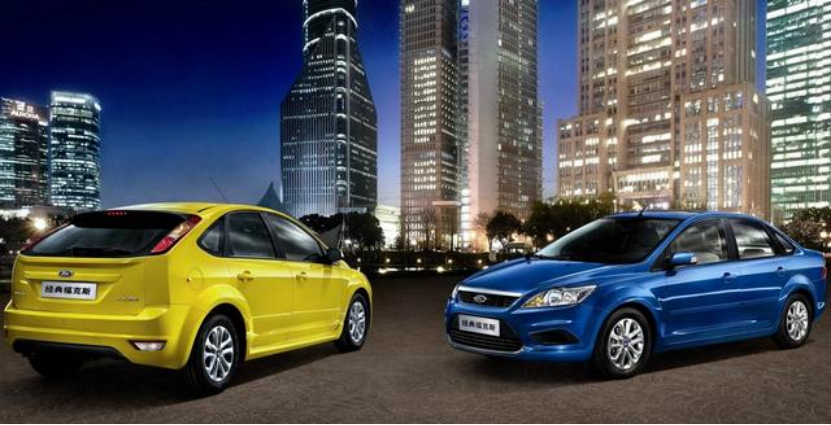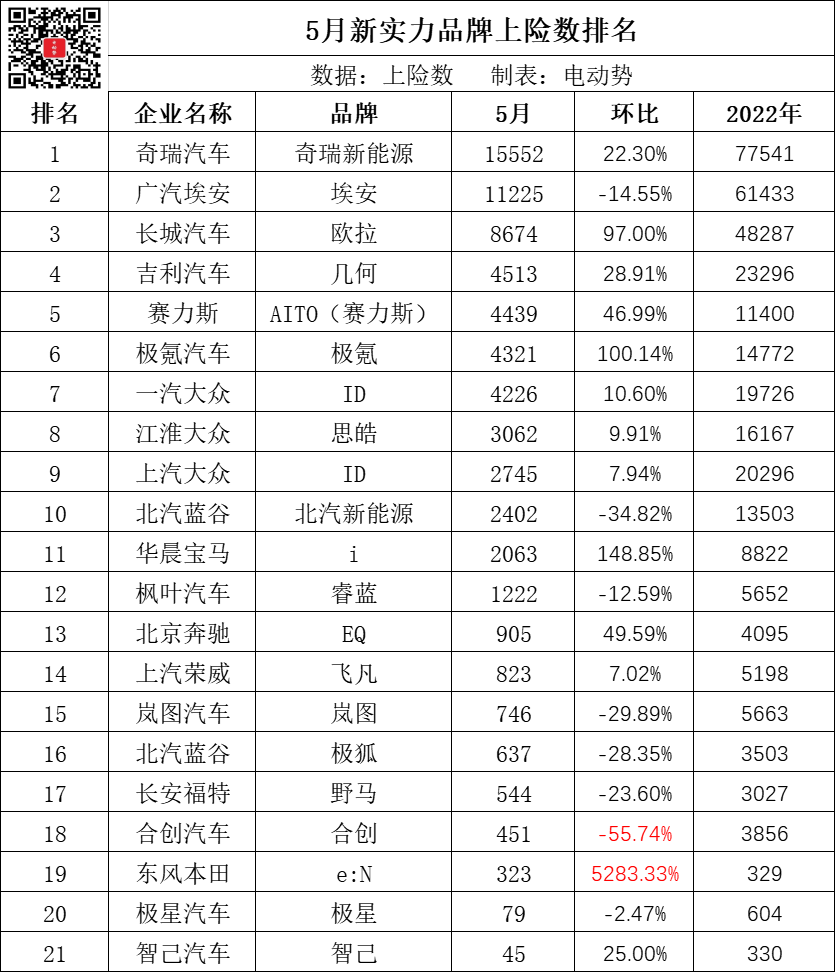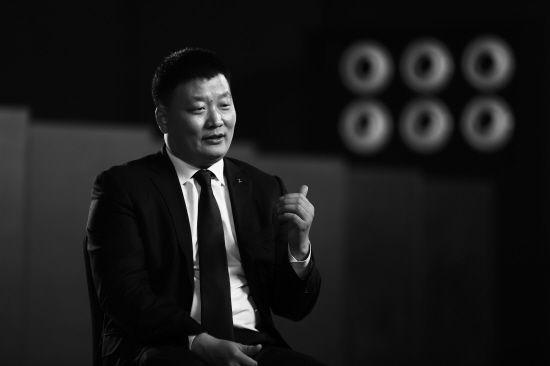Author: Su Qin
When a new brand is just getting started, it needs experienced veterans to help it grow strong and steady.
In January of this year, Ruiran Motors, jointly funded by Geely Automobile and Lifan Technology, was officially established. In the new management team, a familiar face, known in the auto industry as the “Military Seat,” stands out: Cai Jianjun.
Since entering Chang’an in 1998, Cai Jianjun has been in the auto industry for 24 years. He served Chang’an alone for 17 years, but surprisingly, from 2015 to the present, he has served a total of five different brands including BAIC, Qoros, Aiways, Geely and Ruiran Motors!
This time, Cai Jianjun serves as the vice president of Ruiran Motors and general manager of the sales company. He still focuses on sales, but he is now in a new arena of battery swapping, sandwiched between the Geely and Lifan brands!
Although Cai Jianjun has been fighting hard for 24 years, Ruiran Motors is undoubtedly a new starting point in his career. The question is, will this new beginning be the end of Cai Jianjun’s career, which has been “as quiet as a virgin and as fast as a rabbit”?
Expert in Fighting Hard Battles
In 1998, Cai Jianjun joined Chang’an as a grassroots salesman. The following year, he volunteered to become the manager of the Chang’an Auto Liaoning Distribution Center, which was still a blank slate for Chang’an at the time. He started from scratch, expanded to new territories, and turned Northeast China into the main growth engine for Chang’an Motors. Cai Jianjun became a household name overnight.
After achieving victory in the Northeast, Cai Jianjun led Hebei Chang’an to achieve growth from zero to 100,000 units in just three years. His sales spirit and hard work made him the sales director at Chang’an Ford Mazda Automobile Co., Ltd in 2005. By focusing on branding, products and the team, Cai Jianjun helped the Ford Focus achieve sales growth from 50,000 to 200,000 units in just two years. Cai Jianjun’s career reached its peak.

In 2010, Cai Jianjun participated in the preparation for Chang’an PSA joint venture and successfully introduced the French high-end brand DS into China in 2012. To open up sales channels for DS, Cai Jianjun embarked on cross-border marketing, a popular strategy nowadays.DS teamed up with well-known fashion events such as “2012 ELLE Fashion Awards,” “Bentley Elite Model Contest,” and “Shanghai Fashion Week,” packaging DS as a stylish lifestyle and solidifying its high-end positioning in the Chinese automobile market, resulting in accumulated sales of over 35,000 vehicles in 2013 and 2014, successfully grabbing a share of the high-end luxury market dominated by BBA.
From domestic brands to joint ventures to luxury brands, Cai Jianjun’s resume can be described as a shining path. However, in 2015, after 17 years of fiercely fighting for Changan, Cai Jianjun left and joined BAIC, serving as Vice President of BAIC Group, Secretary of the Party Committee of BAIC Sales Company, and Executive Director and General Manager. This marked a new starting point in his career but also a turning point away from his glory days.
During his tenure at BAIC, in order to increase the sales of BAIC Senova, Cai first attracted dealers to join with only one-tenth of the budget of other brands, rapidly expanding the sales base. Then, he issued a large amount of quotas to dealers and asked them to collect payment as soon as possible. In order to relieve inventory pressure and collect payment quickly, dealers had to adopt a strategy of discount promotions and selling at low prices.
At that time, with only 120,000 RMB, one could buy a B-class car at a very low price, and the sales of BAIC Senova rapidly increased. In 2016, it sold 224,500 vehicles throughout the year, becoming one of the fastest-growing Chinese brands with annual sales exceeding 200,000. The “Military Seat” brand name was thus established.
However, this kind of bottom-line low-price sales strategy is equivalent to drinking poison to quench thirst. As consumers no longer pursue low prices but rather focus more on quality and service, and other BAIC brands also strive to gain market recognition, BAIC Senova’s stagnation in service and quality, as well as infighting between internal group brands, had led to a rapid decline in sales after a rapid increase, and BAIC Senova quickly declined and never recovered.
This short-sighted policy brought Cai Jianjun’s career Waterloo. In March 2018, with a sense of frustration, he joined Qoros, but soon left Qoros for “personal reasons,” leaving only words that spoke volumes.
On December 6th of the same year, Cai Jianjun joined AIWAYS as Executive Vice President, building the “7921” innovation marketing system and the 1-1-4-0 digital operation and sales management system, setting the tone for AIWAYS’ service and sales. However, just as Cai Jianjun was thriving in AIWAYS, in 2020 he chose to leave and return to his family.
Afterwards, Cai Jianjun entered Geely and took on responsibility for Lynk & Co.Cai Jianjun, who left Chang’an, has never lost the style of “daring to fight tough battles and good at breaking through,” but he no longer has the same reputation as he did in Chang’an.
New Starting Point
When recalling his career in Chang’an, Cai Jianjun said, “A critical step for me was choosing Changan Automobile. Without Changan Automobile, my life development would have been different, and I might be engaged in work unrelated to cars.”
Indeed, Chang’an was the launching pad for Cai Jianjun’s success, but from his resume, he was not someone who mistook a platform for ability. Today, he stands on the new platform of Jetour, with the past being torn apart into fragmented memories by time’s surging tides. Tomorrow’s rivers surge towards Cai Jianjun, asking with a unique and turbulent wave if he can surpass the past’s highlights.
Regarding this question, perhaps Jetour is offering Cai Jianjun the opportunity to answer it over time!
Jetour is the second brand after NIO to promote battery exchange, but unlike NIO’s high-end positioning, Jetour has currently released three electric vehicles targeting the mid- to low-end market: the X3 PRO, Maple Leaf 80V, and Maple Leaf 60S. It has also cooperated with the Chongqing taxi industry and has already put a hundred Maple Leaf 60S cars into operation in the market.

Regarding the battery exchange program, Jetour’s approach is similar to that of NIO, supporting the purchase method of separating the vehicle and battery, and providing a faster 60s ultra-fast switching solution than NIO.
However, current sales data shows that Jetour is still not recognized by the market. According to data from the China Passenger Car Association, since the launch of the Maple Leaf 80V, only 7,267 units have been sold, which is less than the monthly sales of brands such as BYD and XPeng.
Even if the battery exchange program is Jetour’s ace in the hole, its products are too mediocre. From the unremarkable appearance to the interior similar to that of a gasoline car, Jetour’s cars lack the highlights that attract users to buy. Even if the battery exchange is more convenient, without satisfactory products, it can only be considered a reversal of priorities!

Therefore, from a short-term marketing perspective and a long-term product perspective, Cai Jianjun does indeed have a “blue” future path in his work with Jetour. However, Jetour is still a brand in its infancy, and the road ahead is a long one. If Cai Jianjun can help Jetour achieve growth and even surpass past achievements, it will undoubtedly be a peak in his professional career.
But if Cai Jianjun falls into the vicious circle of frequent job hopping and cannot control himself, it may mean that his career has already quietly ended since he left Chang’an!
This article is a translation by ChatGPT of a Chinese report from 42HOW. If you have any questions about it, please email bd@42how.com.
